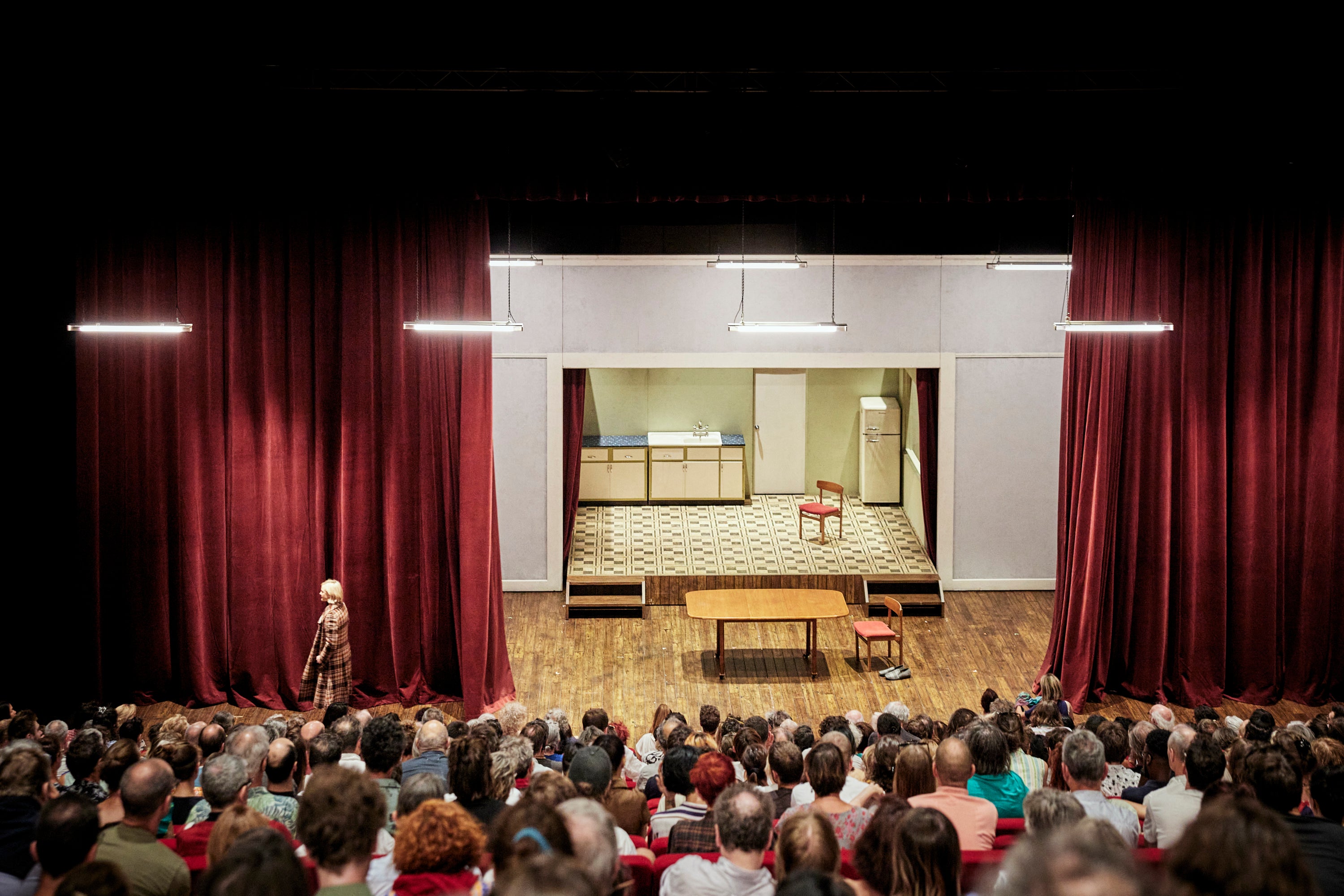The Confessions review: A son’s moving reckoning with his mother’s secrets
Alexander Zeldin’s new production is based on the life of his own mother, but his most personal work yet doesn’t have the naturalistic power of his acclaimed earlier trilogy of plays

When art history student Alice declares, in Alexander Zeldin’s The Confessions, that “the personal is political”, she is shot down. “Depends who the person is,” replies modish, arrogant don Terry. Here, that person happens to be Zeldin’s own mother. In a departure from his previous work, which grappled with the human cost of austerity, the theatremaker has made his most personal work yet, based on the life of his late mother. It’s formed from many hours of conversation with her as she was dying, as well as other women of her generation.
Zeldin’s Inequalities trilogy is one of the most captivating bodies of work from the past decade: Beyond Caring was about zero-hour contract workers looking for dignity; LOVE, a later film version of which was produced by Friends star David Schwimmer, was about a homeless hostel at Christmas; Faith, Hope and Charity took us inside a community centre fighting closure due to local cuts. Naturalistic and deeply humane, these shows often felt like you were watching life itself. Surprisingly, Zeldin’s show, so deeply inspired by his own life, doesn’t achieve that effect – but it still leaves us with a handful of the kind of unforgettable moments he has been uniquely able to fashion.
Ambitious in scope, charting one life over the course of a century, The Confessions is also a stylistic change. Marg Howell’s set – a stage within a stage within a stage – is self-consciously theatrical. We see red velvet curtains swished back and forth, the bare bones of proscenium arches. Music from Foals frontman Yannis Philippakis acts like the blur of memory between scenes, while an older Alice (Amelda Brown) watches the younger Alice (Eryn Jean Norvill) and addresses the audience directly. One of the first things she tells us, as a child, is her dismay that a painting of her father seemed better than the human version; the line between art and reality is a constant theme.
In the play’s first half, we see nervy Alice trying to carve out a life for herself in spite of her dysfunctional parents and unloving husband (“Come on – I’ll not be long” is one of his come-ons), each of whom reminds her of her own failures. These scenes, lacking in intimacy, are like an awkward comedy of manners. It’s later, when Alice escapes and is awakened by education, finding a group of like-minded friends and starting an affair with a lecturer, that things get more compelling. Zeldin knows how to make moments of horror land without fuss, and a scene in which Alice is assaulted takes place completely off stage, to a silence of knowing dread from the audience. Her later confrontation with her attacker is performed by her older self, with young Alice watching on – is this moment real, or imagined? Together, these two scenes of significant power elevate the production.

If The Confessions doesn’t quite offer the same sense of audience communion as Zeldin’s previous work, as a gesture, it is moving. This is a son reckoning with a mother as a person as well as a parent, making the world look at the imprint of patriarchal violence on one life. And as he has shown us before, there is pride, hope and an epic sweep to even the most ordinary story.
National Theatre, until 4 November



Join our commenting forum
Join thought-provoking conversations, follow other Independent readers and see their replies
Comments